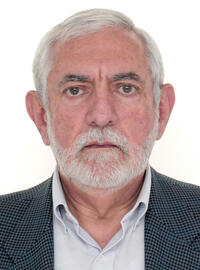The Cultural Advisory Council Welcomes Colombia
The Cultural Advisory Council Welcomes Colombia
By Jaime Rey Albornoz, Bogotá, Colombia
In July I had the pleasure of making a presentation to the expanded board of trustees, in which I reviewed the many cultural, economic, and religious aspects of Colombia, many of which are relevant to the future of The Urantia Book and its teachings in my country.
The Republic of Colombia is in the northwestern corner of South America, on the equatorial line. It is the fourth-largest country in South America, and has the privilege of being the connecting point between the northern and southern hemispheres, by way of Panama. It is the only country in South America with coastline on both the Pacific and Atlantic (through the Caribbean Sea) oceans.
Colombia’s biodiversity and variety of climates make it a natural paradise. In fact, there are few countries with as much flora and fauna biodiversity. In terms of species of animals and plants per hectare, Colombia ranks first in the world. Through an extensive system of national parks, nine million hectares are dedicated to the protection and development of natural life.
The country is divided into five natural regions. The Andean region, as you might expect, contains three major divisions of the Andes Mountains, a range shared with Ecuador and Venezuela. It is the most populated area of the country, and is distinguished by large cities and numerous tourist attractions.
The Amazon region is such a natural and cultural treasure that it is considered the lungs of the planet. While it is the least populated area of the country, ecological tourism is a major attraction there. The Caribbean region stretches from desert areas to humid jungles in the Gulf of Urabá. Beautiful beaches and river valleys constitute spectacular landscapes.
The Pacific region has varied climates that bring together a universe of exotic flora and fauna species. Visiting the Colombian Pacific is an indescribable adventure! The Orinoquia region has extensive plains. Its climate is warm, and cattle raising is the most favored economic activity. It is also a veritable Eden of bird, insect, and reptile species.
Colombia is a multicultural country with a rich and noisy history. The country is teeming with fairs, festivals, and carnivals. Each celebration is unique to the region and features dances, exquisite gastronomy, and heartfelt hospitality that begs you to stay.
Catholicism was brought to the early Spanish colony by missionaries from Spain and was the official religion of the state from 1886 until 1991, when the Colombian constitution guaranteed freedom of religion and declared all religious faiths and churches equally free before the law. The Christian population in Colombia is estimated at 92.5%, of which 89% are Catholic, 10.8% are Protestant, and 0.2% are other denominations.
Colombia is one of the largest, per capita, Urantia Book–reading countries in the world. We have 41 confirmed Urantia Book study groups, both in-person and online, with 641 regularly attending members. Colombia also has four local affiliates of Urantia Association International (the Association).
In considering what Urantia Foundation could do for Colombia, I think it would be helpful if a representative would participate in a virtual meeting with Association president Enrique Traver, to explain what the Foundation is, what it does, and how readers can take advantage of the resources it offers. For instance, the Foundation has already donated a significant number of El libro de Urantia books which are being distributed to local readers by the Association. It would also be wise to approach and listen to the young people, who have ideas and technological proposals.
